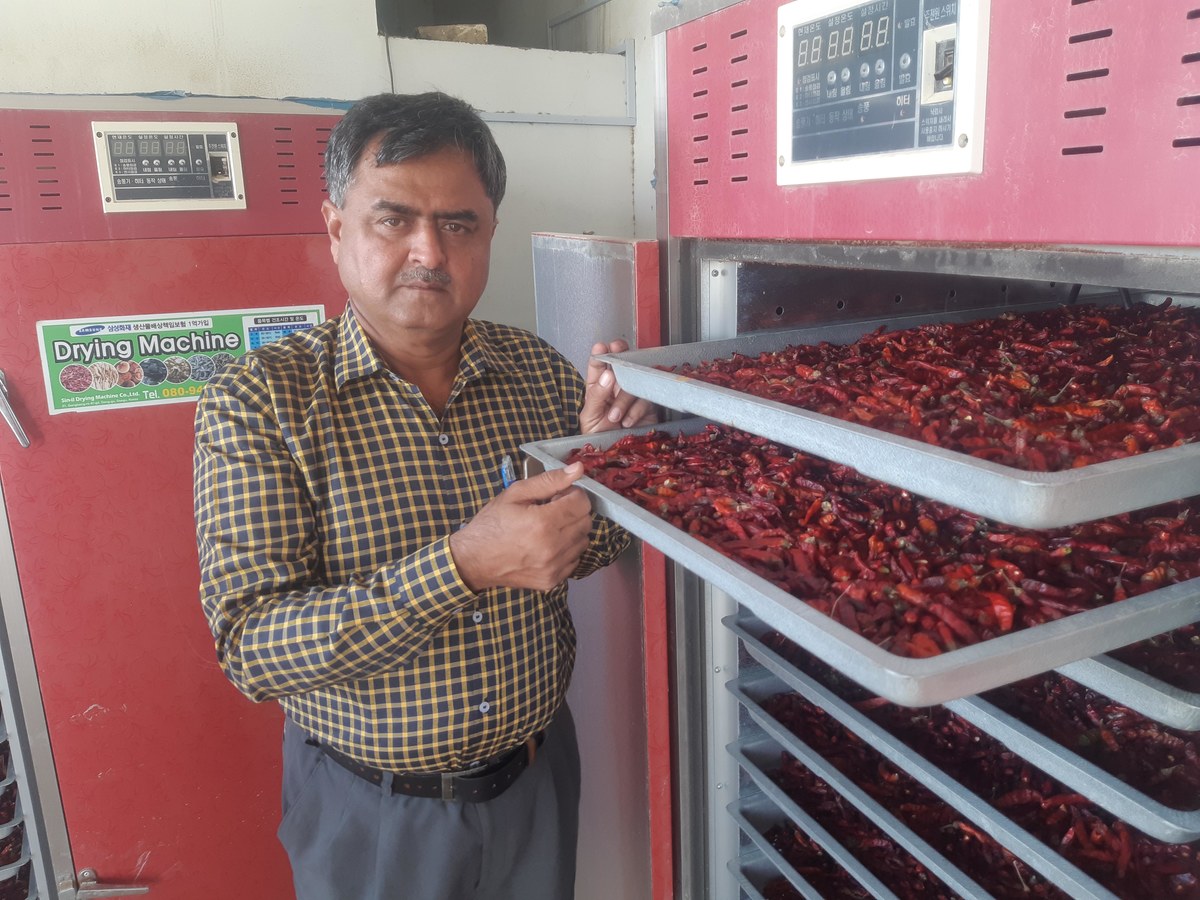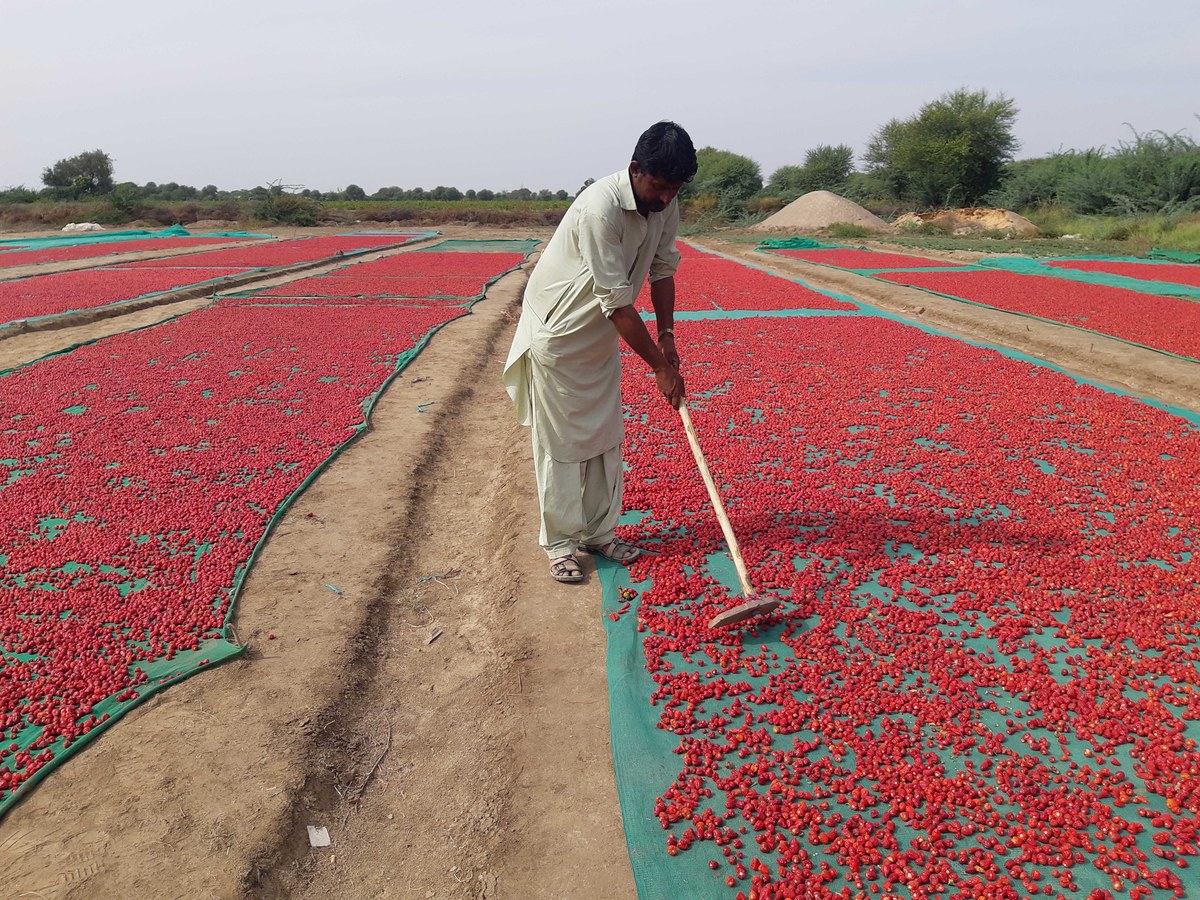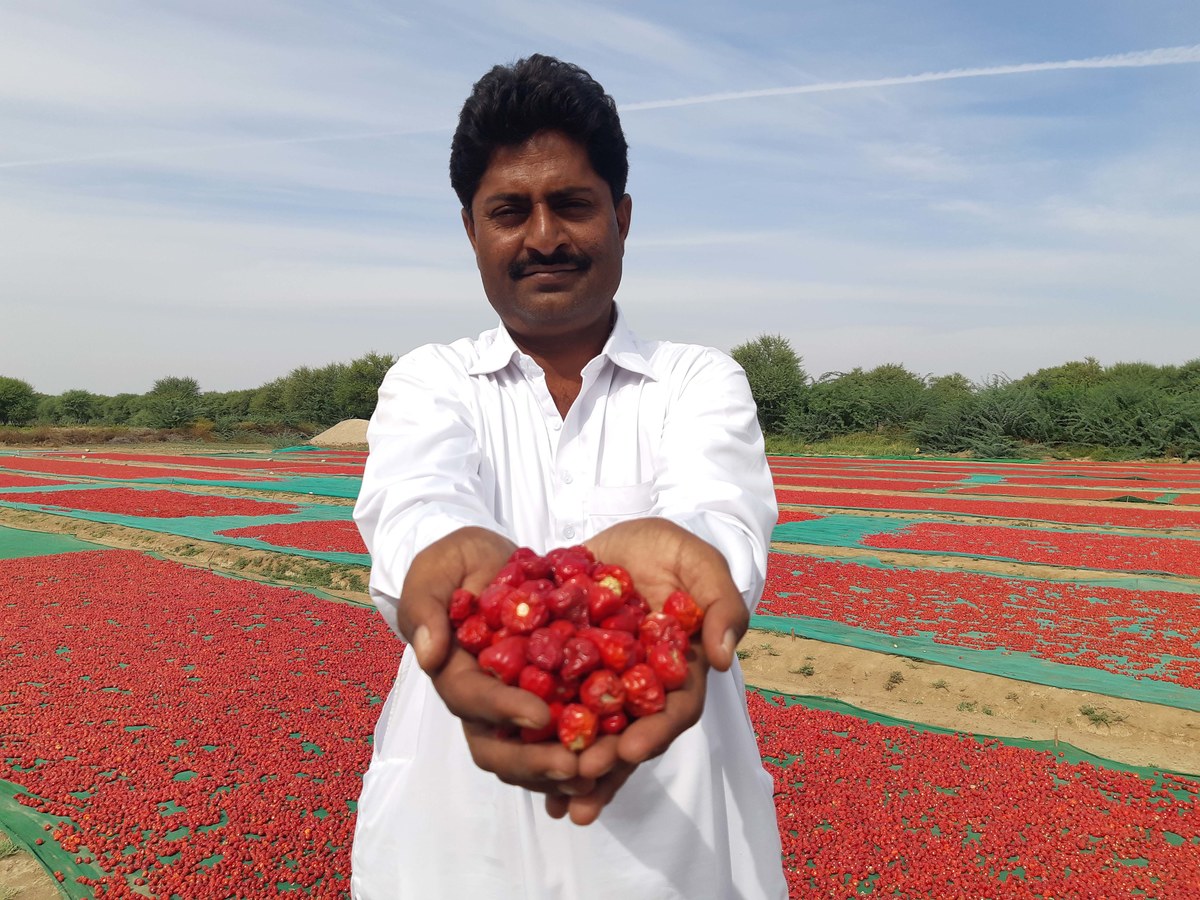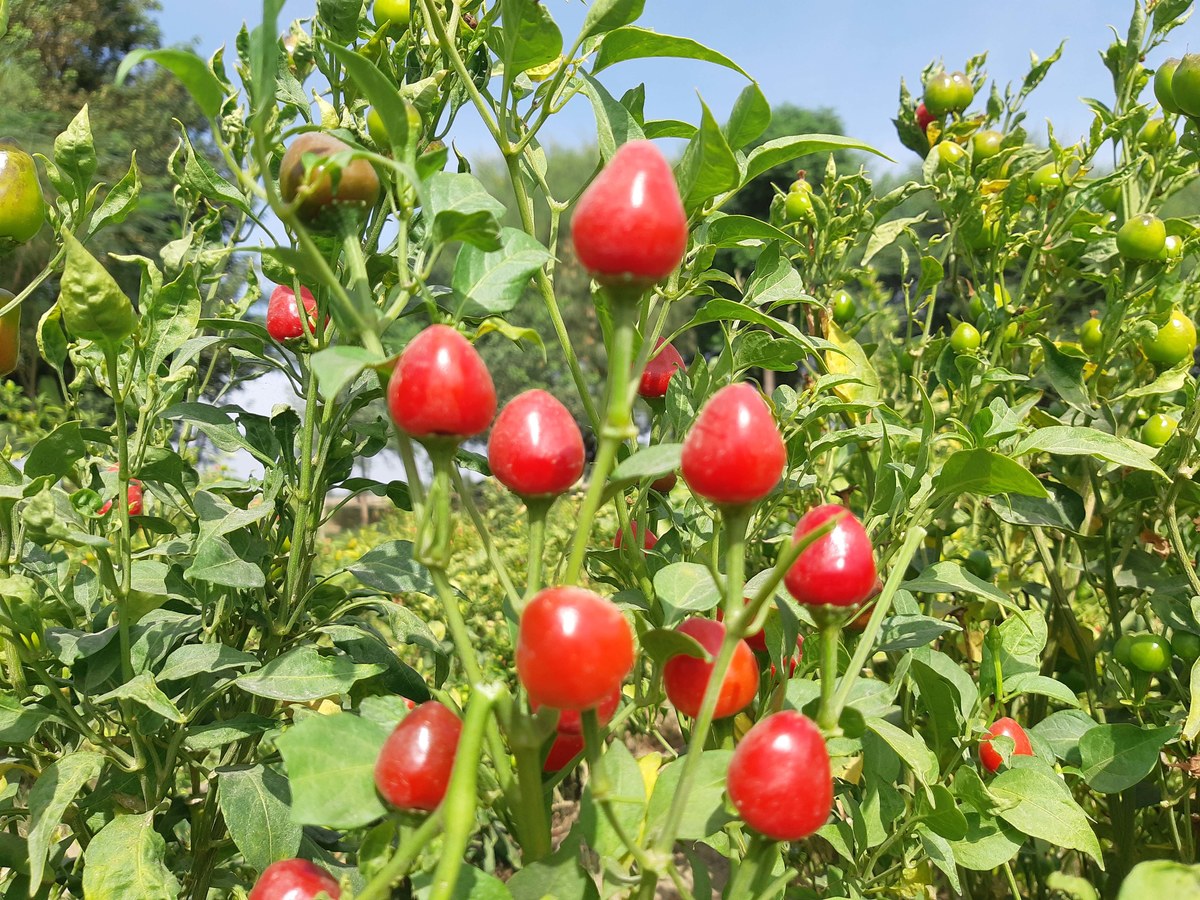UMERKOT, SINDH: A dozen growers in Pakistan’s southern province of Sindh are successfully using modern methods and machines to protect their chilli crops against fungal contamination in a region that is highly vulnerable to climate change and ranked among the top five in the world for chilli cultivation and production.
Around 150,000 acres (60,700 hectares) of farms in Pakistan produce 143,000 tons of chilli annually, making the country the fourth largest for chilli production worldwide. Sindh, which produces 126 million tons, contributes around 88 percent of the country’s total chilli production.
But floods that wreaked havoc across Pakistan last year, on the back of several years of high temperatures, have left chilli farmers struggling to cope. In a country heavily dependent on agriculture, the more extreme climate conditions are hitting rural economies hard, farmers and experts say, underscoring the vulnerability of swathes of South Asia’s population to changing weather patterns.
In recent years, contamination by aflatoxin — a toxic byproduct of a mold that tends to spread in drought-stressed crops during production, harvest, storage or processing — has also hit chilli crops in Sindh.
Dr. Muhammad Siddique Depar, the principal scientific officer at the government’s Arid Zone Research Center (AZRC) Umerkot, said chillies traditionally needed to be air-dried outdoors for two weeks but increasingly higher daytime

In this photograph, taken on November 13, 2023, Dr. Muhammad Siddique Depar, the principal scientific officer at a research center, showcases dried red chilies using a drying machine in the Umerkot district of Pakistan's Sindh province. (AN Photo by Zulfiqar Kunbhar).
temperatures and inconsistent dew were creating favorable conditions for aflatoxin growth during the process of drying. The rest of the damage was done by dust in the outdoors, which collected on the chillies as they dried.
“Over the past three years or so, AZRC has installed a foreign-donated red chilli drying machine, a solar tunnel, and a chilli dehydrator drying and washing machine,” Depar said, explaining the modern methods being used by twelve growers to combat aflatoxin contamination.
Compared to two weeks in the open air, chillies can dry in four days inside a solar tunnel and within 30 hours with a dryer. Both methods also prevent the chilli crop from being exposed to dust, which is the main reason for a decline in quality, Depar added.
“After the area’s [12] growers utilized these facilities for drying fresh chilli crops, achieving better results compared to open-sky drying, we can say it proved to be a successful model,” the researcher said.

Worker spreads red chilies for drying in the Umerkot district of Pakistan's Sindh province on November 13, 2023. (AN Photo by Zulfiqar Kunbhar)
But the machines are not adequate to meet the demands of the region’s farmers.
Four red chilli dryer units and two chilli washing units were donated by the Korea Program for International Cooperation in Agricultural Technology to AZRC Umerkot. The total capacity of the KOPIA chili drying units is 20 maunds, or approximately 800 kilograms. In addition, one unit each of a solar tunnel and a solar-cum-gas-dryer were installed at AZRC Umerkot under a Pakistan Agricultural Research Council agriculture-linkage program project titled Post-harvest Processing of Chilies for Producing Quality Produce. The project started in 2018 and ended in 2020.
Now, Umerkot’s chilli growers want the government to scale up the new methods to save local chillis from contamination.
“I availed the AZRC red chilli drying facilities and it saved me time and quality,” farmer Javed Rajar told Arab News.

In this photograph, taken on November 13, 2023, farmer Javed Rajar showcases local chillis in the Umerkot district of Pakistan's Sindh province. (AN Photo by Zulfiqar Kunbhar)
“However, I am still dependent on traditional methods too as AZRC did not have that capacity to dry all my chilli crops. The issue is that for large scale production these machines are not enough.”
He called on the government to act promptly to protect the region’s famous Lungi chilli crop.
“Lungi chilli is renowned for its unique taste globally,” the grower said. “However, environmental conditions are either causing a decline in its production or it is being replaced by hybrid varieties. The government needs to act promptly by establishing large-scale chilli drying units to support local farmers and boost Lungi’s exports.”
Official figures show Pakistan’s dried red chilli exports have declined in the last few years, mainly due to aflatoxin. As per the Trade Development Authority of Pakistan (TDAP), Pakistan exported 2,751 metric tons of dried red chillies in 2019, which declined to 1,665 metric tons in 2022.
But officials are optimistic that with innovation, chillis can be protected from toxins in the future during the drying process.
“Using modern techniques helps us to manage the phytosanitary and meet food safety requirements of other [importing] countries by addressing the issues of aflatoxin and pesticide residues,” Dr. Mubarik Ahmed, a consultant for agriculture and food at TDAP, told Arab News.
“TDAP is planning to help local chilli farmers in developing more drying units.”

This photograph, taken on November 13, 2023, shows local red chilies at a farm in the Umerkot district of Pakistan's Sindh province. (AN Photo by Zulfiqar Kunbhar).
















